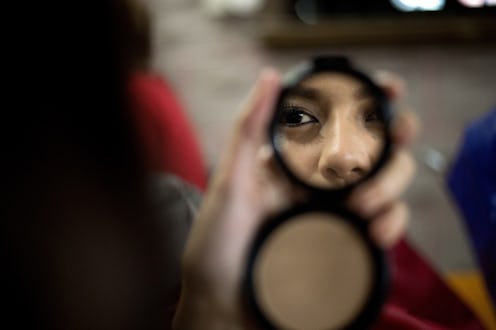Fashion
This Study Reveals How Much You Think You're Worth
Isn’t it weird how sometimes you can feel super confident in your own skin, while other times, you'd rather run a marathon (with a bag over your face) than be seen in public? Well, there is actually much more to this inconsistency in personal perceptions of confidence. Stanford School of Business’ researchers, Peter Belmi and Margaret Neale, conducted a study that said we base our self-worth on how beautiful we feel. Their results were extremely eye-opening, but at the same time, entirely understandable.
Belmi and Neale found out that feeling attractive makes people think that they belong in higher social classes. Similarly, on the other hand, feeling unattractive makes people believe that they belong in a lower social class. On a surface-leveled approach, this sounds pretty redonk, but after considering the constraints and expectations that society piles onto us, it definitely makes sense.
Belmi believes that this type of conditional perception is common because societies set the standard of beauty based off of the upperclass’ sense of fashion and looks. On top of that, media often equates the unachievable photoshopped perfection as “real beauty.” This naturally leads many to use makeup and even get plastic surgery as a means to “Photoshop” themselves in real life. That way, we are able to achieve society’s definition of beauty, which then makes us feel more confident and ultimately feel like we are worth more.
I mean, like the saying goes, “We are our hardest critic,” so the moment we are satisfied with our physical appearance, we have technically satisfied our hardest critic. It makes complete sense then why we would value ourselves more highly when we feel stylin’. But to be honest, I really wish this perception would just shatter. Based off Belmi and Neale’s study, it’s apparent that society has a stronghold on our self-perceptions and confidence levels. We need to start breaking that and begin to find our worth in things other than just society’s unrealistic standards of beauty.
Images: chanelofficial/Instagram; Giphy
